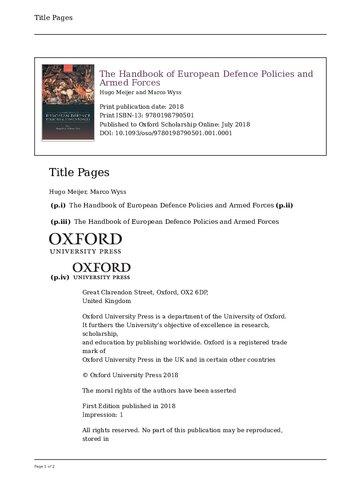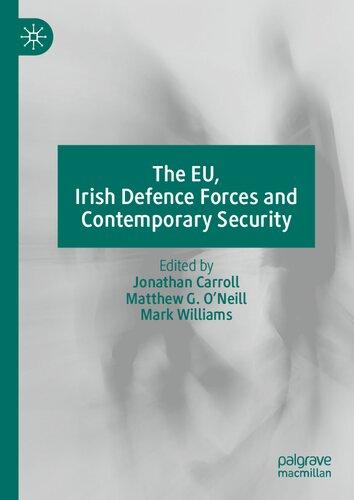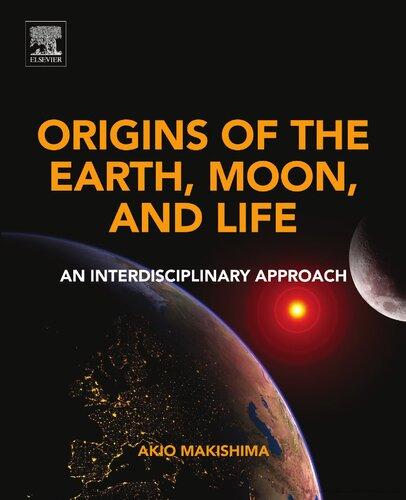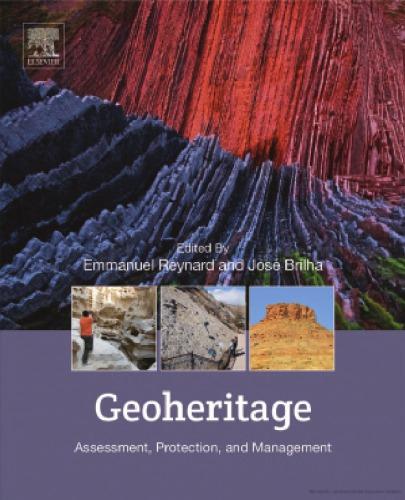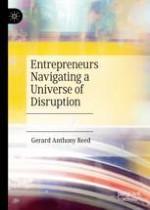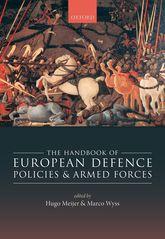Neuroanatomie Martin Trepel
https://ebookmass.com/product/neuroanatomie-martin-trepel/
ebookmass.com
Geoheritage. Assessment, Protection, and Management Emmanuel Reynard José Brilha
https://ebookmass.com/product/geoheritage-assessment-protection-andmanagement-emmanuel-reynard-jose-brilha/
ebookmass.com
Entrepreneurs Navigating a Universe of Disruption Gerard Anthony Reed
https://ebookmass.com/product/entrepreneurs-navigating-a-universe-ofdisruption-gerard-anthony-reed/
ebookmass.com
The Realm Reaper’s Prey Celeste King
https://ebookmass.com/product/the-realm-reapers-prey-celeste-king/
ebookmass.com
CompTIA PenTest+ Certification All in One Exam Guide (Exam PT0 001) (Ebook PDF)
https://ebookmass.com/product/comptia-pentest-certification-all-inone-exam-guide-exam-pt0-001-ebook-pdf/
ebookmass.com
https://ebookmass.com/product/myles-textbook-for-midwives-e-book/
ebookmass.com
The Handbook of European Defence Policies and Armed Forces
Hugo Meijer and Marco Wyss
Print publication date: 2018
Print ISBN-13: 9780198790501
Published to Oxford Scholarship Online: July 2018
DOI: 10.1093/oso/9780198790501.001.0001
Title Pages
Hugo Meijer, Marco Wyss
(p.i) The Handbook of European Defence Policies and Armed Forces (p.ii)
(p.iii) The Handbook of European Defence Policies and Armed Forces
(p.iv)
Great Clarendon Street, Oxford, OX2 6DP, United Kingdom
Oxford University Press is a department of the University of Oxford. It furthers the University’s objective of excellence in research, scholarship, and education by publishing worldwide. Oxford is a registered trade mark of Oxford University Press in the UK and in certain other countries
© Oxford University Press 2018
The moral rights of the authors have been asserted
First Edition published in 2018
Impression: 1
All rights reserved. No part of this publication may be reproduced, stored in
a retrieval system, or transmitted, in any form or by any means, without the prior permission in writing of Oxford University Press, or as expressly permitted by law, by licence or under terms agreed with the appropriate reprographics rights organization. Enquiries concerning reproduction outside the scope of the above should be sent to the Rights Department, Oxford University Press, at the address above
You must not circulate this work in any other form and you must impose this same condition on any acquirer
Published in the United States of America by Oxford University Press 198 Madison Avenue, New York, NY 10016, United States of America
British Library Cataloguing in Publication Data Data available
Library of Congress Control Number: 2018931024
ISBN 978–0–19–879050–1
Printed and bound by CPI Group (UK) Ltd, Croydon, CR0 4YY
Links to third party websites are provided by Oxford in good faith and for information only. Oxford disclaims any responsibility for the materials contained in any third party website referenced in this work.
Access brought to you by:
The Handbook of European Defence Policies and Armed Forces
Hugo Meijer and Marco Wyss
Print publication date: 2018
Print ISBN-13: 9780198790501
Published to Oxford Scholarship Online: July 2018
DOI: 10.1093/oso/9780198790501.001.0001
Dedication
Hugo Meijer, Marco Wyss (p.v) To Ingrid, Laura André, Bert (p.vi)
Access brought to you by:
The Handbook of European Defence Policies and Armed Forces
Hugo Meijer and Marco Wyss
Print publication date: 2018
Print ISBN-13: 9780198790501
Published to Oxford Scholarship Online: July 2018
DOI: 10.1093/oso/9780198790501.001.0001
(p.vii) Foreword: National Defence at a Time of Doubt
Lawrence Freedman
STUDENTS of international affairs have a tendency to believe that they are living through a uniquely transformational period, full of uncertainty and with hitherto unimagined dark possibilities lurking round the corner. We might now look back to the cold war and see a time of remarkable stability, when the international hierarchy was understood, the dividing lines between the two blocs were well established, and a shared fear of nuclear deterrence ensured caution. Yet that was not always how it appeared at the time, from the alarms in the 1950s that the nuclear arms race was spinning out of control to the great crises of the early 1960s in Berlin and Cuba. Even once these crises had been survived, the literature of the time is full of warnings about the determination of the Soviet leadership to get into a war-winning position, and how they were cowing sections of European opinion into an appeasing mentality (‘Finlandization’) or were making advances in the Third World to get into a position to cut the West off from its raw materials. NATO was forever in disarray, caught up in intractable disputes about burden-sharing and whether the Americans were leading their allies into disaster or were on the verge of abandoning them. There was a period in the mid-1970s that was particularly gloomy when the United States was hampered by the Watergate scandal and Western economies were coping with the dramatic rise in the oil price, inflation, and stagnation. The early 1990s, with the cold war now over, is recalled as one of cheerful optimism. The Soviet bloc dissolved with good grace, and liberal democracy look set to be embraced by all. Yet at the time reasons were found to be wary of the future. There were warnings (not all misplaced) that great power politics would return
as toxic as ever or that nationalism could also replace socialism as a ruling ideology and that ethnic tensions were ready to rush to the fore.
So it is entirely possible that historians will look back to our times and wonder what the fuss was all about. To be sure there is a general sense of foreboding, but it does not focus on a particular scenario. The reasons why a great power makes little sense and will probably be avoided remain as compelling as they have been since 1945. The international economy has regained its equilibrium after the 2008 financial crisis and for the moment energy supplies seem plentiful. Climate change remains a worry, although its implications for security remain unclear. There are major geopolitical changes underway, notably China’s rise to superpower status, and this has caused tensions, but these have thus far been managed, and Europeans tend to think that this is largely an issue for the Asia–Pacific region and not their own.
Yet the sense that big changes are underway that will have a major impact on our security is hard to avoid. It is often described in terms of an unravelling of the liberal international order that was established in the years after 1945 and has by and large served (p.viii) the international community well. The concerns that an era is about to end focuses on the quality of American leadership, but also on whether values are sufficiently shared and interests recognized to be in common for the West to stick together through whatever crises may be coming. This may not yet be a time of great transformations, but it is a time of doubts, of not quite knowing how the institutions and systems that have developed over many decades, and thus far adapted well to new circumstances, will cope with their next severe test.
One reason for doubt is that the two countries that have long been to the fore in setting the Western security agenda have been losing their interest in this role for some time. This is more than a Brexit or Trump phenomenon. The United Kingdom and then the United States both developed their global positions (and in the UK case an empire) as a result of their naval mastery. This enabled them to exercise influence around the globe and act whenever their interests were threatened and also to encourage international trade in a way that helped them grow prosperous. The British Empire has been long consigned to history and the United Kingdom can no longer really consider itself a global power with a distinctive set of international interests that might need protecting by force. Yet it has not been left in a particularly exposed position. For decades British leaders worried about Dean Acheson’s 1962 jibe that their country had lost an empire without finding a role, assuming that Acheson deserved an answer and that there was a special role that only the United Kingdom could perform. One regular favourite was as a bridge between North America and Europe, though this, as with such claims, could not withstand much scrutiny. Only in its close ties with the United States, especially in the nuclear and intelligence fields, did the United Kingdom offer something different from other European nations.
What has been ducked was the possibility that there was no unique role and that this might not matter. The advantage of being an island on the western edge of Europe is that it takes less to guarantee national security than if it were placed closer to the likely trouble spots in the former Soviet space, the Balkans, or the Mediterranean. This is not to say that it is ready to opt out, although the Brexit vote was an indication that it might be. British leaders still assert a sense of responsibility, not least because of the United Kingdom’s role as a Permanent Member of the United Nations (UN) Security Council, and it will not explicitly embrace passivity. But, when new issues arise, it no longer seems to be anxious to take a forward position.
One reason for this is that for a whole range of reasons, from the long ties of history and culture and a similar geopolitical outlook, the United Kingdom feels most comfortable when acting together with the United States. If the United States was active, then the United Kingdom was also likely to be engaged. But, by the same token, if the United States concluded that it wished to accept fewer of the burdens of international leadership, then so might the United Kingdom. The British example is not the normal one cited when one is thinking about the consequences should America ease back on its leadership role. Japan and South Korea, Saudi Arabia, and Israel would have more pressing reasons to be concerned. In Europe those closer to the trouble spots would have more reason to reassess their security policies. But this illustrates the importance of American leadership in pulling others along.
The United States accepted in the 1950s a set of alliance obligations and other treaty commitments that gives it an unparalleled position in international affairs. This went against the isolationism and neutralist instincts of the interwar years. Where disengagement (p.ix) prior to 1939 did not prevent major war, engagement after 1945 has helped prevent a Third World War. But disengagement has always had its attractions and a constituency in the United States, not least because it removed the country from territorial risk. For whatever reasons, President Trump picked an old isolationist slogan in ‘America First’ for his inaugural address in January 2017. But the issue has been around for some time. Until the attacks of 9/11 it was more tentative in dealing with crises that did not touch directly on its alliance responsibilities. As a result of the draining counterinsurgency operations in Iraq and Afghanistan, the United States now appears fatigued by its international responsibilities and is looking to reduce its liabilities. This was the case even under President Obama. Trump has given mixed signals on this as on so much else, as his inclination has been to appear belligerent on any issue in which the United States is being tested, while at the same time talking openly about being ready to abandon established US positions on free trade and alliance obligations. Even though he does not always actually follow through, the net effect has been to aggravate that ever-present element of doubt about whether the United States will honour its alliance
obligations. Despite the rhetoric, so far mainstream policies have been sustained.
One reason for anxiety is that Russia has taken a belligerent turn. This was evident in the war with Georgia in 2008 and the much more severe confrontation with Ukraine that has been underway since 2014. During the 1990s Moscow began to feel it was being taken for granted. The problems faced in securing distinctive Russian interests through institutional mechanisms left Moscow isolated diplomatically. The promotion of Western concepts of the good life and good government were seen as a neocolonialist effort to create a global system that suits Western purposes and denies alternative cultures. President Putin’s dislike of the ‘colour revolutions’ in other former Soviet republics leads to his fear that one will be triggered in Russia. This was one—defensive—reason for the attack on Ukraine, a punishment for a popular swing away from closer ties with Russia to the European Union (EU). But the annexation of Crimea, aggression in eastern Ukraine, and the menacing of countries such as Estonia have served to isolate Russia further. The conflict with Ukraine has not changed in character (although it remains violent) since the autumn of 2014, and Russia has not taken military moves against others. Its room for manoeuvre has been limited by a weak economy, because of sanctions and the fall of commodity prices, and a more demanding intervention in Syria. It invested in Donald Trump during the 2016 election campaign, but its interference may have backfired, as the evidence of Russian interference has ended up with Trump’s hands being tied and deeper sanctions in place.
Yet the evidence that Trump would have liked to work more closely with Putin has unnerved Europeans. He has also created another source of doubt. During his short tenure in the White House he has shown extraordinary levels of incompetence and disregard for the normal conventions of public life. While many agreed with Trump’s pressure on his NATO allies to spend more on defence, the idea that the shortfall was in some way owed to the United States provided more evidence of ignorance of how the alliance works. This has been mystifying and alarming for those who have traditionally looked to the United States for political leadership. All this has been more corrosive than transformational, weakening the position of the United States without displacing it. Such behaviour encourages hedging, with allies thinking about alternative arrangements without rushing to put them in place in the hope that they might not be necessary.
(p.x) More serious is his challenge to a collection of core principles that have helped hold together the West. Whether or not his challenges to free trade amount to much, his evident dislike for the underlying principle has chipped away at one of the conceptual foundations of the post-1945 international order. Pulling out of the Paris accords on climate change, his distaste for social liberalism, his readiness to dismiss statements he does not like as ‘fake news’,
and his refusal to make human rights a prominent feature of foreign policy distance his administration from the European establishment. They legitimize attitudes that are certainly current in Europe, and in this way help undermine the consensus that facilitates cooperation across the Atlantic and within Europe. This is not to argue that these principles are beyond challenge, or that they have suffered by being part of an elite outlook that can come over as being complacent and indifferent to the views and circumstances of ordinary people. Yet, where it gets a hold of a government, it can lead to a creeping authoritarianism—even in allies such as Turkey, Poland, and Hungary.
One hedge for Europeans against the loss of American leadership is to build up the EU’s Common Security and Defence Policy (CSDP). It was long a Gaullist aspiration to exclude the ‘Anglo-Saxons’ from European affairs, and the idea that the EU could look after its own defences appealed to those who believed that it could never really be complete until it could take on all the functions of a state, including war-making. When the cold war came to an end, and it was unclear in both Washington and Brussels whether the United States needed to play much of a future role in regional affairs, then the Europeans looked to play a more assertive role in sorting out local crises. The first test came in the summer of 1991 in Yugoslavia. European ministers proclaimed this as Europe’s hour—a time to demonstrate its crisis-management capabilities. Its palpable failure, with the issue effectively handed over to the UN and NATO, diminished rather than enhanced the EU’s reputation. This encouraged the view that it was preferable to have the Americans involved, but there had to be some provisions made just in case they did decide to disengage. This was the origin of the CSDP, which was launched with great fanfare by President Chirac of France and Prime Minister Blair of Britain at Saint-Malo in 1998. It soon got bogged down in institutional wrangles—over how the CSDP should relate to NATO and what functions could be usefully duplicated. In the event, CSDP has tended to concentrate on important tasks, such as peacekeeping missions or dealing with piracy and refugee issues, where there has been no need for an American input, but not on the big security issues, such as deterrence and coping with conflicts like Ukraine (although on the economic sanctions side the EU already plays a leading role). As the United Kingdom has always been opposed to the more ambitious proposals for a European defence force, its impending departure from the EU has appeared to open up the possibility of the issue being revived.
The problems that have always hampered the replacement of NATO with the EU remain. First, most do not want to signal to the United States that it could manage without them lest they persuade Washington that it was safe for it to go. Only the United States can provide nuclear deterrence and the military weight to cope with a developing conflict. Does France expect to take over the job of extended deterrence from the United States? Second, doing more is expensive. There have long been complaints from the United States that European countries have not spent enough on defence and that their military capabilities
are in poor repair. Third, the rhetoric tends to get muddled, so that any cooperation, including on weapons procurement or joint units organized bilaterally or trilaterally, or the sort of modest missions currently undertaken under the CSDP heading, are presented as (p.xi) moves towards an integrated European entity. Fourth, even with greater integration, the ability to deploy forces would still be limited by the particular interests of individual countries, especially in relation to major crises outside Europe. How many countries would wish to join France, for example, in one of its overseas operations? There is no evidence that Germans are keen to act on behalf of other European countries, such as the Baltic states, if attacked by Russia. In principle, of course, Europe should have the resources to deter Russia, which has a GDP equivalent to Spain and well below that of Germany, France and the United Kingdom, but that will require major investment.
This is the context against which national defence policies are currently being formulated. It is one in which it is hard to make a case for a ‘peace dividend’, but nor is there an emergency (other than perhaps for the non-NATO countries bordering Russia, and Russia itself). Governments are thinking more about defence policies but without yet striking out in new directions. It is the lack of confidence about where this might all lead that justifies a careful look at where countries currently stand in terms of their national defence policies. It is very difficult to see what options there might be for the future, how well they might cope with the distinctive challenges, whether from Russia or North Africa and the Middle East, and the extent to which the context actually shapes the policies. As the contributions to this excellent volume show, national governments still respond to national needs in their defence-planning and procurement, shaped by their countries’ histories, cultures, and circumstances. They have done so through the decades of alliance and latterly the CSDP, and will continue to do so in the future. Great geopolitical movements create the dangers of conflict, and so they deserve our attention, but there are also changes going on all the time in national capabilities, and they also deserve our attention. With the publication of this volume there will be no excuse not to be informed about what is going on at the national level and the implications for the management of future crises and conflicts.
August 2017 (p.xii)
Access brought to you by:
The Handbook of European Defence Policies and Armed Forces
Hugo Meijer and Marco Wyss
Print publication date: 2018
Print ISBN-13: 9780198790501
Published to Oxford Scholarship Online: July 2018
DOI: 10.1093/oso/9780198790501.001.0001
(p.xvii) List of Figures
Hugo Meijer, Marco Wyss
8.1The frequency of foreign policy topics in NSC press briefings, 1991–2002161
8.2The frequency of foreign policy topics in NSC press briefings, 2003–2011162
8.3The frequency of foreign policy topics in NSC press briefings, 2012–2017163
8.4Military expenditure of Turkey, 1991–2016172
8.5Military expenditure by country, 1991–2016173
12.1Defence spending by Belarus, 1997–2015242
15.1Military spending by NATO members, 1993–2015287
15.2Composition of defence spending, Czech Republic, Hungary, and Slovakia, 1999–2014288
15.3Participation in international operations, Czechoslovakia/Czech Republic, Hungary, and Slovakia, 1990–2015291
21.1NATO European defence spending in 2016: meeting the 2% of GDP target385
24.1Top-level governance of UK–French defence cooperation431
25.1Number of German and French operations by frame, 1990–2015454
26.1Aggregate European military expenditures, 1989–2015472
39.1Alternative weapons acquisition strategies679
39.2The hierarchical structure of defence industries in the value chain 683
39.3Government measures to protect national defence industries from international competition684
40.1European collaboration activities, 1961–1995697
40.2Project participations per group, 1961–1995697
40.3Collaborative defence equipment procurement expenditure per group, 2005–2011700
50.1Annual number of active military operations and civilian missions, 2003–2016878
50.2Aggregate numbers of CSDP troops and personnel per year, 2003–2015878
(p.xviii)
Access brought to you by:
The Handbook of European Defence Policies and Armed Forces
Hugo Meijer and Marco Wyss
Print publication date: 2018
Print ISBN-13: 9780198790501
Published to Oxford Scholarship Online: July 2018
DOI: 10.1093/oso/9780198790501.001.0001
(p.xix) List of Tables
Hugo Meijer, Marco Wyss
2.1Foreign deployments of German armed forces, 1990–201559
2.2Number of German armed forces deployed abroad (troops), and mission spectrum, 1989–201460
2.3The Bundeswehr’s key characteristics, 1989–201466
2.4Classification of German security policy styles, 1990–201568
3.1Comparative size of key elements of armed forces, 1990–199877
5.1Major international Italian military operations in the post-cold war era 116
7.1Military expenditure and troop deployment, Portugal and Spain, after the cold war146
11.1The Baltic States’ armed forces by service, 1995–2015216
11.2The Baltic States’ defence spending, 1993–2015220
12.1Main categories of Belarus equipment244
20.1Danish and Norwegian armed forces, 1990–2010370
25.1Regularized bilateral Franco-German intergovernmentalism since 1963442
25.2Franco-German Cooperation: Facilitating and inhibiting factors455
43.1Tentative classification of unmanned aerial vehicles748
44.1Sample of cyber-defence and cyber-surveillance companies in France765
44.2Sample of cyber-defence and cyber-surveillance companies in Germany768
44.3Sample of cyber-defence and cyber-surveillance solutions providers in the United Kingdom771
44.4Sample of cyber-defence and cyber-surveillance companies in Italy 773
44.5Sample of cyber-defence and cyber-surveillance solutions providers in Spain775
44.6Sample of cyber-defence and cyber-surveillance solutions providers in Sweden776
48.1Characteristic features of Russian military operations, 1992–2016 850
50.1CSDP military operations and civilian missions, 2003–2016874
50.2Dimensions of diversity in CSDP military operations877
51.1Concluded NATO operations in the post-cold war period895
51.2Continuing and post-Afghanistan NATO operations902
51.3Significant NATO exercises in 2015905
51.4NATO operations: Participation and risk, 1996–2014908
51.5Operations, 2014–2016909
51.6Exercises, 2015909 (p.xx)
Access brought to you by:
The Handbook of European Defence Policies and Armed Forces
Hugo Meijer and Marco Wyss
Print publication date: 2018
Print ISBN-13: 9780198790501
Published to Oxford Scholarship Online: July 2018
DOI: 10.1093/oso/9780198790501.001.0001
(p.xxi) Notes on Contributors
Hugo Meijer, Marco Wyss
1.Editors
Dr Hugo Meijer
is Marie Skłodowska-Curie Fellow at the European University Institute (EUI), Robert Schuman Centre for Advanced Studies, and the Academic Director of the European Initiative on Security Studies (EISS). Previously, he was Lecturer in Defence Studies at King’s College London (2013–16) and a Researcher at the Institute for Strategic Research (IRSEM, Paris, 2016–17). He received his Ph.D. in International Relations from Sciences Po in 2013 (summa cum laude) and currently works on Western defence and security policies in the Asia–Pacific. Recent publications: La Politique étrangère: Approches disciplinaires [Foreign Policy: Disciplinary Approaches], co-edited with Christian Lequesne (Montreal University Press, 2018); Trading with the Enemy: The Making of US Export Control Policy toward the People’s Republic of China (Oxford University Press, 2016); Origins and Evolution of the US Rebalance toward Asia: Diplomatic, Military, and Economic Dimensions (ed.) (Palgrave Macmillan, 2015). He has also published in such journals as the Journal of Strategic Studies, European Journal of International Security, and the Journal of Cold War Studies.
Dr Marco Wyss
is Lecturer in the International History of the Cold War at Lancaster University, a Research Fellow at the University of the Free State, an Associate Fellow at the Institute of Commonwealth Studies, and a Fellow of the Royal Historical Society. Previously, he was a Senior Lecturer in Politics and Contemporary History at the University of Chichester, and a Senior Researcher at the Center for Security
Studies, ETH Zurich. He gained his Ph.D. from the Universities of Nottingham and Neuchâtel, and currently works on Britain’s and France’s postcolonial security roles in West Africa. Marco is co-editor of the ‘New Perspectives on the Cold War’ book series (Brill), and the editor of the International Journal of Military History and Historiography. He is the author of, among other works, Arms Transfers, Neutrality and Britain’s Role in the Cold War (Brill, 2013), and co-editor of Peacekeeping in Africa (Routledge, 2014), Neutrality and Neutralism in the Global Cold War (Routledge, 2016), and Europe and China in the Cold War (Brill, forthcoming). His articles have been published in such journals as the Journal of Contemporary History, International History Review, Journal of Imperial and Commonwealth History, Cold War History, RUSI Journal, Journal of Cold War Studies, and Historical Journal
(p.xxii)
2.Chapter Authors
Dr Jan Joel Andersson is Policy Officer at the European Defence Agency in Brussels. He wrote his contribution to this volume while working at the EU Institute for Security Studies in Paris as Senior Analyst of military capability development and defence industry issues. Previously, Dr Andersson was Dragas Distinguished Visiting Professor of International Studies at Old Dominion University in Norfolk, Virginia, and Senior Research Fellow and Head of Defence Studies at the Swedish Institute of International Affairs in Stockholm. A graduate of Uppsala University and Fulbright scholar, he received his MA and Ph.D. in Political Science from the University of California at Berkeley. His recent publications include ‘The Race to the Bottom: Submarine Proliferation and International Security’, US Naval War College Review (2015), and ‘Nordic NATO’, Foreign Affairs (2014).
Dr Christian F. Anrig is Deputy Director of Doctrine, Swiss Air Force. From 2007 to 2009, he was a Lecturer in the Defence Studies Department of King’s College London. The author of The Quest for Relevant Air Power (Air University Press, 2011), he has also published various book chapters and articles on air power and its ramifications for European nations. Dr Anrig is a reviewer for Air & Space Power Journal. Air forces and institutions across Europe have invited him as a speaker on air power.
Dr Félix Arteaga is Senior Analyst for Security and Defence at the Elcano Royal Institute, and Professor of European Security at the Instituto General Gutierrez Mellado (MoD-UNED, Madrid). He researches and lectures on international security, and defence and security policies. He has been the peer reviewer for Portugal and Spain under the ‘European
Defence Monitoring’ Research Project for the European Defence Agency, Stiftung Wissenschaft und Politik (SWP), 2012–15, and he has also contributed to the chapter on ‘Spain and the CSDP’ in Daniel Fiott (ed.), The Common Security and Defence Policy: National Perspectives (Egmont Institute, Institute for European Studies, Academy Press).
Dr Jordan Baev
is Professor of Contemporary History and Senior Research Fellow of Security Studies at Rakovski National Defense College, and a Visiting Professor at Sofia University. Since 1998 he has been Vice-President of the Bulgarian Association of Military History. Dr Baev is a member of the Editorial Boards of Voennoistoricheski Sbornik [Military History Journal] in Sofia and Strategic Monitor in Bucharest. Since 1980 he has written more than 250 publications in twelve languages, including nine monographs and textbooks, on cold war diplomatic, military, and intelligence history, international terrorism, peacekeeping, and civil–military relations.
Matthias Bieri
is a Researcher in the Swiss and Euro-Atlantic Security Team of the think tank at the Center for Security Studies (CSS) at ETH Zurich. He studied at the University of Fribourg and the Free University of Berlin, and completed his studies with a Master’s degree in History Before joining the CSS, Matthias Bieri worked for the Swiss Delegation to the OSCE in Vienna, where he was involved in the work related to the OSCE’s politico-military dimension. He is the co-editor of the policy brief series CSS Analyses in Security Policy. (p.xxiii) Felix Biermann
is a Research Fellow at the Ludwig Maximilian University (LMU) Munich (Germany). His research focuses on European Studies, International Relations theory, and defence cooperation. He holds a Bachelor’s in Philosophy and Economics from Bayreuth University, as well as a Master of Public Policy from the Willy Brandt School of Public Policy at Erfurt University. After completing his studies, he worked in public sector consulting and provided advice on budgetary questions for both federal and local administrations. Dr Vincent Boulanin
is a Researcher at the Stockholm International Peace Research Institute (SIPRI). He works on issues related to the production, use, and control of emerging military and security technologies, notably cyber-security technologies and autonomous weapons systems. He received his Ph.D. in political science from the École des Hautes Études en Sciences Sociales in Paris. His recent publications include (with Renaud Bellais) ‘Toward a High-Tech “Limes” on the Edges of Europe? Managing the External Borders of the European Union’, in
Elisabeth Vallet (ed.), Borders, Fences and Walls: State of Insecurity (Ashgate, 2014), and ‘Cyber Security and the Arms Industry’, SIPRI Yearbook 2013: Armaments, Disarmament and International Security (Oxford University Press, 2013).
Mark Bromley
has been Co-Director of the Dual-Use and Arms Trade Control Programme at the Stockholm International Peace Research Institute (SIPRI) since April 2014. Before this, he was employed with the SIPRI Arms Transfers Programme, as a Research Associate from 2003, as a Researcher from 2006, and as a Senior Researcher from 2009. Previously, he was a policy analyst for the British American Security Information Council (BASIC). Mark’s work at SIPRI focuses on international arms transfers, governmental transparency in the field of arms exports, and the workings of national, regional, and international strategic trade control regimes and instruments.
Dr Dionysios Chourchoulis
is adjunct lecturer of Greek History at the Hellenic Open University, and adjunct lecturer of History of International Relations at the Ionian University. He holds a Ph.D. from the School of History, Queen Mary University of London. His thesis has been published as a monograph entitled The Southern Flank of NATO, 1951–1959: Military Strategy or Political Stabilization (Lexington Books, 2014). He also holds an MA in modern and contemporary Greek history from the National & Kapodistrian University of Athens, as well as an M.Sc. in history of international relations from the London School of Economics and Political Science. His academic interests include political, military, and economic history during the twentieth century (with an emphasis on the cold war period) in the Balkans, the Eastern Mediterranean, and the Middle East.
Dr Fabrizio Coticchia
is Assistant Professor of Political Science at the University of Genoa. Previously, he was a Jean Monnet Fellow, European University Institute (EUI). His fields of research are contemporary warfare, European military transformation, strategic narratives and security issues, political parties and defence policy, Italian and European defence policy, and development cooperation. His books include: Italian Military Operations Abroad: Just Don’t Call it War, with Pietro Ignazi and Giampiero Giacomello (Palgrave, 2012), La guerra che non c’era. Opinione pubblica e interventi militari italiani (Egea, 2014), Adapt, Improvise, Overcome? The Transformation of Italian Armed Forces in Comparative Perspective, with Francesco N. Moro (Ashgate, 2015), and Italian Foreign Policy under (p.xxiv) Matteo Renzi: A Domestically-Focused Outsider and the World, with J. Davidson (Lexington, forthcoming).
Andrew M. Dorman
is Professor of International Security at King’s College London and the Commissioning Editor of International Affairs, the journal of the Royal Institute of International Affairs, Chatham House. At King’s he leads the new Centre for British Defence and Security Studies. He has published widely on aspects of British defence and security policy, European security, and defence transformation. His research focuses on the interaction of policy and strategy, utilizing the case studies of British defence and security policy and European security. He has held grants with the Economic and Social Research Council (ESRC), British Academy, Leverhulme Trust, Ministry of Defence, and US Army War College. He trained as a Chartered Accountant with KPMG, qualifying in 1990 before returning to academia. He has previously taught at the University of Birmingham, where he completed his Master’s and doctoral degrees, and the Royal Naval College Greenwich.
Frédérick Douzet
is Professor at the French Institute of Geopolitics of the University of Paris 8, and Castex Chair of Cyber Strategy (Institut des hautes études de défense nationale, IHEDN/Airbus Group). She is a member of the editorial boards of the reviews Hérodote and Sécurité et Stratégies, and received several awards for her research: FIC Book Prize for strategic thinking (2015); France-Berkeley Fund Award for Outstanding Young Scholar (2014); Alphonse Milne Edwards book prize from the Society of Geography (2008); Ernest Lemonon book prize from the Academy of Moral and Political Sciences (2008); and Best Paper Award from the Urban Affairs Association (2009). She was nominated junior member of the Institut Universitaire de France in 2006. Her publications include: Les Conflits dans le monde (Armand Colin, 2011), Géographie des conflits (La Documentation française, 2012), 50 fiches pour comprendre la géopolitique (Bréal, 2010), and Dictionnaire des banlieues (Larousse, 2009). Since 2012, she has published four books (two co-edited), twelve book chapters, and over fifteen peer-reviewed articles and conference contributions, and given dozens of talks to various audiences. Her current research interests deal with the geopolitics of cyberspace. She was appointed director of the Castex Chair of Cyber Strategy in February 2013.
Robert Egnell
is Professor of Military Sociology and Head of the Department for Security, Strategy, and Leadership at the Swedish Defence University. Professor Egnell received his Ph.D. (2008) in War Studies from King’s College, London. He has previously been a Visiting Professor and Director of teaching in the Security Studies Program at Georgetown University, a Senior Researcher at the Swedish Defence Research
Agency, and an Assistant Lecturer at the University of Dar es Salaam. His publications include numerous articles in academic peer review journals, as well as four books: Gender, Military Effectiveness and Organizational Change: The Swedish Model (Palgrave Macmillan, 2014), Counterinsurgency in Crisis: Britain and the Challenges of Modern Warfare (Columbia University Press, 2013), New Agendas in Statebuilding: Hybridity, Contingency and History (Routledge, 2013), and Complex Peace Operations and Civil–Military Relations: Winning the Peace (Routledge, 2009).
Dr Filip Ejdus is a Marie Curie Fellow at the School of Sociology, Politics and International Studies (University of Bristol), and an Assistant Professor at the Faculty of Political Sciences (University of Belgrade). In the broadest sense, his research looks at the management of (in)security during crises and beyond borders, while his geographic expertise is the (p.xxv) Western Balkans, Middle East, and the Horn of Africa. In his current project, he studies the local ownership principle in EU crisis-management interventions. Additionally, he has been closely involved with the security policy community as a board member of the Belgrade Centre for Security Policy, academic coordinator at the Belgrade Security Forum, and the co-chair of the Regional Stability in South East Europe Study Group at the Partnership for Peace Consortium of Defence Academies and Security Studies Institutes.
Sir Lawrence Freedman has been Professor of War Studies at King’s College London since 1982. He became head of the School of Social Science and Public Policy at King’s in 2000 and was appointed Vice-Principal in 2003. Before joining King’s, he held research appointments at Nuffield College Oxford, the International Institute for Strategic Studies (IISS), and the Royal Institute of International Affairs. He was appointed Official Historian of the Falklands Campaign in 1997. Professor Freedman has written extensively on nuclear strategy and the cold war, as well as commentating regularly on contemporary security issues. Among his books are Kennedy’s Wars: Berlin, Cuba, Laos and Vietnam (Oxford University Press, 2000), The Evolution of Nuclear Strategy (3rd edn, Palgrave Macmillan, 2004), Deterrence (Polity Press, 2005), the two volumes Official History of the Falklands Campaign (2nd edn, Routledge, 2007) and an Adelphi Paper on The Transformation in Strategic Affairs (Routledge, 2004). A Choice of Enemies: America Confronts the Middle East (Weidenfeld & Nicolson, 2008) won the 2009 Lionel Gelber Prize and Duke of Westminster Medal for Military Literature. His most recent book is Strategy: A History (Oxford University Press, 2013).
Dr Andrew Futter
is a Senior Lecturer in International Politics at the University of Leicester, United Kingdom. His work focuses on contemporary nuclear weapons issues, including ballistic missile defence, proliferation, the changing nature of deterrence, and new challenges to the utility and perception of nuclear forces. He has published two books, Ballistic Missile Defence and US National Security Policy (Routledge, 2013) and The Politics of Nuclear Weapons (Sage, 2015), and written widely for numerous peer-reviewed and professional publications. He is currently working on an ESRC-funded Future Research Leaders project, looking at how cyber weapons and the advent of a new information age are challenging, transforming, and impacting on the role, efficacy, and thinking that underpin nuclear weapons and strategy.
Dr Bastian Giegerich
is the Director of Defence and Military Analysis at the International Institute for Strategic Studies (IISS) in London. Having been affiliated with the IISS since 2005, he worked for the German Ministry of Defence and the German armed forces between 2010 and 2015 in various research and policy roles. Dr Giegerich holds a Ph.D. in International Relations from the London School of Economics and Political Science, and an MA in Political Science from the University of Potsdam, Germany.
Dr Andrea Gilli
is an International Security Program postdoctoral fellow at the Belfer Center for Science and International Affairs, John F. Kennedy School of Government, Harvard University, and was a post-doctoral fellow at both the Center for Security Studies, Metropolitan University Prague and at the Center for International Security and Cooperation, Stanford University, when his chapter was written. Andrea works on technological change, military innovations, and international security. He holds a Ph.D. in Social and (p.xxvi) Political Science from the European University Institute (EUI) in Florence. In 2015 he was awarded the European Defence Agency and Egmont Institute’s biannual prize for the best dissertation on European defence, security, and strategy. Andrea has provided consulting services to both private and public organizations, including the EU Military Committee and the US Department of Defence’s Office of Net Assessment, and he has worked and conducted research for, or been associated with, several institutions, including the NATO Defense College, the Royal United Services Institute, the European Union Institute for Security Studies, the Saltzman Institute for War and Peace Studies at Columbia University in New York, and the Center for International Security and Cooperation at Stanford University. Andrea is a 2015 alumnus of the
Summer Workshop on the Analysis of Military Operations and Strategy (SWAMOS), and his research has been published in International Security, Security Studies and the RUSI Journal.
Dr Mauro Gilli
is a Senior Researcher in Military Technology and International Security at the Center for Security Studies of ETH Zurich. He holds a Ph.D. in Political Science from Northwestern University (Evanston, IL), an MA from the School of Advanced International Studies of Johns Hopkins University (Washington, DC), and a BA from the University of Turin. He is an alumnus of the International Policy Summer Institute of the Bridging the Gap Project at the American University (2017); of the Summer Workshop on the Analysis of Military Operations and Strategy of the Saltzman Institute for War and Peace Studies of Columbia University (2014); and of Empirical Implication of Theoretical Models Summer Schools at the Harris School of Public Policy of the University of Chicago (2011). During the academic year 2015/16 he was a postdoctoral fellow at the Dickey Center for International Understanding of Dartmouth College. His research has been funded by the Smith Richardson Foundation, the Roberta Buffet Institute for Global Studies, and the Kellogg School of Management, and has been published in Security Studies, Washington Post-Monkey Cage, Diplomat, PLOS-One, and Social Science Quarterly
Richard Gowan
was previously Research Director at New York University’s Center on International Cooperation (CIC) and is a Senior Policy Fellow at the European Council on Foreign Relations (ECFR). He is also an adjunct professor at Columbia University’s Center for International Conflict Resolution (CICR). At CIC, he was the first coordinator of the Annual Review of Global Peace Operations and editor of the first Review of Political Missions. For ECFR, Gowan has written on EU–UN relations, human rights, and European crisis management. Gowan writes a column (‘Diplomatic Fallout’) forwww.worldpoliticsreview.com, and has also published opinion pieces in Foreign Policy, the International Herald Tribune, Politico, and other publications, in addition to academic essays in Global Governance, International Peacekeeping, and various edited volumes. He has been quoted on peacekeeping and crisis diplomacy in The Economist, the Financial Times, and the Guardian, and on the drinking habits of some UN diplomats in the New York Times
Dr Ryan Grauer is an Associate Professor of International Affairs in the Graduate School of Public and International Affairs at the University of Pittsburgh. His current research examines the sources of military
power, the global diffusion of military doctrines, and soldier surrender and desertion in war. He is the author of Commanding Military Power (Cambridge University Press, 2016), which investigates the impact of militaries’ organizational capacity to manage emergent information about the state of the battlefield on their combat power. His other work has been published in the journals World Politics, Security (p.xxvii) Studies, and the Journal of Global Security Studies. He received his Ph.D. in Political Science from the University of Pennsylvania.
Dr Yaprak Gürsoy
is a Lecturer at Aston University. Prior to joining Aston, she was an Associate Professor at Istanbul Bilgi University and a Senior Member of St Antony’s College, University of Oxford, in 2016/17. Her research interests include comparative politics, regime change, civil–military relations, Greek politics, and populism. She is the author of Between Military Rule and Democracy: Regime Consolidation in Greece, Turkey, and Beyond (University of Michigan Press, 2017) and The Transformation of Civil–Military Relations in Turkey (in Turkish, Istanbul Bilgi University Press, 2013). Her articles have appeared in numerous journals, including Political Science Quarterly, Democratization, South European Society and Politics, Turkish Studies, and the Journal of Political and Military Sociology. Dr Gürsoy has been serving as the Vice-President of the International Political Science Association (IPSA) Research Committee on Armed Forces and Society since 2011 and in 2016 was awarded with the Science Academy Young Scientists Award (BAGEP) given to promising Turkish scientists.
Flemming Splidsboel Hansen
is a Senior Researcher and Research Coordinator at the Danish Institute for International Studies. He previously served as Head of the Politico-Military Department at the OSCE in Tajikistan, Research Director at the Danish Defence College, Analyst with the Danish Defence Intelligence Service, and Assistant Professor at the Central European University in Budapest. His research interests include security and defence policies in the former Soviet Union, identity politics, and integration in the post-Soviet space.
Dr Gunther Hauser
holds the Chair of the section of International Security at the National Defence Academy in Vienna. Since completing his academic training in political science and international law at the Universities of Innsbruck and Salzburg, he has been working on the security and defence issues of Austria and the EU, NATO, the OSCE, and the UN, as well as on Chinese foreign and defence policy, and has published widely on these topics since 2000. His chair’s focus in research and
teaching is on strategic concepts of major powers and international security organizations.
Professor Keith Hayward
is a consultant and writer on aerospace and aviation issues. He was formerly Professor of International Relations at Staffordshire University, Head of Economic and Political Affairs at the SBAC, the UK aerospace trade association, and, until January 2015, Head of Research at the Royal Aeronautical Society in London. He has been a consultant or advisor to several company and government departments, the latter including the UK Ministry of Defence and the Department of Business, Innovation and Skills. He has also acted as an advisor to the UK House of Commons Trade and Industry Committee and the US Congress Office of Technology Assessment. He has taken part in a number of collaborative studies of the space industry on behalf of the Commission of the European Union and the European Space Agency. He is the author of several books and over a hundred articles and chapters on aerospace and aviation issues. He is a Fellow of the Royal Aeronautical Society and of the French Air and Space Academy.
Dr Masha Hedberg
is the James Andersen Adjunct Professor of European and Eurasian Studies at the School of Advanced International Studies (SAIS), Johns Hopkins University. She also is a Visiting Fellow at the Robert Schuman Centre for Advanced Studies, European (p.xxviii) University Institute, where she was previously a Jean Monnet Fellow. She holds a Ph.D. from Harvard University. Her current research focuses on post-Soviet geopolitics; EU–Russian foreign policy and trade relations; and the comparative political economy of Russia, the former Soviet Union, and Eastern and Central Europe.
Dr Dorle Hellmuth
is Associate Professor of Politics at the Catholic University of America and serves as the academic director of the politics department’s parliamentary internship programmes in Europe. Her book Counterterrorism and the State (University of Pennsylvania Press, 2015) analyses post-9/11 counterterrorism decision-making and responses in the United States, Germany, the United Kingdom, and France. She has briefed members of parliament, law enforcement, and government representatives on counterterrorism, national security, and defence issues. She is a non-resident fellow at the American Institute for Contemporary German Studies (AICGS) and serves as a fellow at the German Institute on Radicalization and DeRadicalization Studies (GIRDS). Her research and teaching cover world politics, particularly the study of transatlantic security, counterterrorism, counter-radicalization, homeland security,
European and general comparative politics, and American foreign policy. Professor Hellmuth held previous appointments as Assistant Professor at the American University’s School of International Service and as Research Fellow at the National War College, National Defense University.
Adrian Hyde-Price
is Professor of Political Science at the Department of Political Science, Gothenburg University. He has previously held chairs of International Politics at the Universities of Bath and Leicester, and has also held academic posts at the Universities of Birmingham, Southampton, and Manchester. His main areas of research are European security, German foreign and security policy, and international relations theory. His main publications include The Challenge of Multipolarity: European Security in the Twenty-First Century (Routledge, 2007);Germany and European Order (Manchester University Press, 2000); The International Politics of East Central Europe (Manchester University Press, 1996); European Security beyond the Cold War: Four Scenarios for the Year 2010 (Sage, 1991); and British Foreign Policy and the Anglican Church: Christian Engagement with the Contemporary World (co-edited, Ashgate, 2008).
Andres Kasekamp is Professor of Baltic Politics at the Johan Skytte Institute for Political Studies at the University of Tartu in Estonia. He is a graduate of the University of Toronto and holds a Ph.D. in modern history from University College London (1996). He served as the Director of the Estonian Foreign Policy Institute from 2000 to 2013. His A History of the Baltic States (Palgrave Macmillan, 2010) was awarded the Baltic Assembly Science Prize and has been translated into nine languages. He is President-Elect of the Association for the Advancement of Baltic Studies and an Honorary Fellow of the Baltic Defence College. Dr Lucas Kello is Senior Lecturer in International Relations at the University of Oxford, where he serves as Director of the Cyber Studies Programme. He is also Co-director of the interdisciplinary Centre for Doctoral Training in Cyber Security in the Department of Computer Science. Previously, he was a joint research fellow in the International Security Program and Cyber Project at Harvard University’s Belfer Center for Science and International Affairs. He was also a member of the Harvard–MIT multiyear project on Explorations in Cyber International Relations. He remains affiliated with Harvard as an associate of the Belfer Center’s Science, Technology, and Public Policy Program and Cyber Project. (p.xxix) His recent publications include ‘The Meaning of the Cyber Revolution: Perils to Theory and
Statecraft’ in International Security, ‘The Virtual Weapon: Dilemmas and Future Scenarios’ in Politique étrangère, and ‘Security’ in The Oxford Companion to International Relations.
Dr Benjamin Kienzle
is a Lecturer in Defence Studies and an Associate Researcher at the Centre for Science & Security Studies (CSSS) at King’s College London. Previously, he was the Marie Curie Fellow at CSSS, where he implemented a project on the increasing interaction between the European Union and international non-proliferation institutions in the field of nuclear and chemical weapons. His current research focuses on multilateral security cooperation, in particular in Europe. He has published articles in this area in a number of journals, including International Affairs, Cooperation and Conflict, Mediterranean Politics, European Security, and the Journal of World Trade
Dr Wim Klinkert
is Professor of Modern Military History at the Faculty of Military Studies of the Netherlands Defence Academy in Breda, and of Dutch Military History at the University of Amsterdam. He also lectures on military history at the Dutch Staff College. He has published several books and articles on late-nineteenth- and twentieth-century Dutch military history. His recent publications include Small Powers in the Age of Total War, 1900–1940 (with Prof. Herman Amersfoort), and Defending Neutrality: The Netherlands Prepares for War, 1900–1925, both published by Brill in 2011 and 2013 respectively. Recent articles have been published in the Journal of Intelligence History, Journal for First World War Studies, and the Yearbook of International Humanitarian Law. With Herman Amersfoort he supervises a Ph.D. project on the changes within the different branches of the Dutch armed forces in the period 1989–93. Currently, he is participating in an extensive project to publish a multi-volume military history of the Netherlands (1550–2010), supervised by the Netherlands Institute for Military History.
Dr Ina Kraft (née Wiesner) is the head of a project on multinationality and international armed forces at the Bundeswehr Center of Military History and Social Sciences in Potsdam, Germany. She received her Ph.D. in Political and Social Sciences from the European University Institute in Florence, Italy. Her research interests include the sociology of military technology, German military transformation, and methodology in the social sciences. She is the author of Importing the American Way of War? Network-Centric Warfare in the UK and Germany (Nomos, 2013), and the editor of German Defence Politics (Nomos, 2013). Recent publications include ‘Process Tracing in Case Studies’ (with Pascal Vennesson), in the Routledge Handbook of
Research Methods in Military Studies (Routledge, 2014), and ‘UAV for R2P?: Exploring the Effectiveness and Legitimacy of Drones’, in Precision Strike Warfare and International Intervention (Routledge, 2015).
Dr Ulrich Krotz
is Professor at the European University Institute, where he holds the Chair in International Relations in the Department of Political and Social Sciences and the Robert Schuman Centre for Advanced Studies. He is Director of the Schuman Centre’s programme on Europe in the World. He is the author of Shaping Europe: France, Germany, and Embedded Bilateralism from the Elysée Treaty to Twenty-First Century Politics (with Joachim Schild) (Oxford University Press, hardback 2013, paperback 2015); Flying Tiger: International Relations Theory and the Politics of Advanced Weapons (Oxford University Press, 2011); and History and Foreign Policy in France and Germany (Palgrave Macmillan, (p.xxx) 2015). His journal publications have appeared in, among others, World Politics, International Security, International Affairs, the European Journal of International Relations, Foreign Policy Analysis, West European Politics, and the Journal of Common Market Studies.
Dr Ulrich Kühn
is a Senior Research Associate at the Vienna Center for Disarmament and Non-Proliferation of the James Martin Center for Nonproliferation Studies, Middlebury Institute of International Studies at Monterey, a Nonresident Scholar with the Nuclear Policy Program at the Carnegie Endowment for International Peace, and a member of the trilateral Deep Cuts Commission. Previously, he worked for the German Federal Foreign Office. In 2011 he was awarded a United Nations Fellowship on Disarmament. Kühn is an alumnus of the ZEIT Foundation Ebelin und Gerd Bucerius and a former Stanton Nuclear Security Fellow. He has published on deterrence and arms control, international security institutions, and transatlantic security.
Professor Julian Lindley-French, Ph.D., MA (Distinction), MA (Oxon), is Vice-President of the Atlantic Treaty Association, a Senior Fellow at the Institute of Statecraft in London, Director of Europa Analytica in the Netherlands, a Distinguished Visiting Research Fellow at the National Defense University in Washington, DC, and a Fellow of the Canadian Global Affairs Institute. His many books include the Oxford Handbook of War (Oxford University Press, 2014),Little Britain? Twenty-First Century Strategic Challenges for a Middling European Power (CS Publishing, 2015),NATO: The Enduring Alliance

